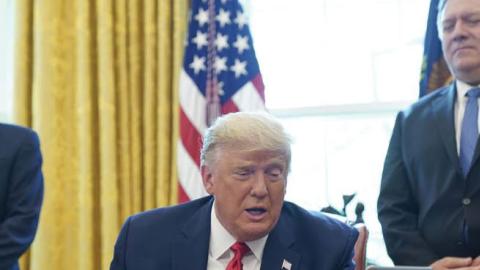The odds are against him again, but Donald Trump has every intention of winning four more years in office. In foreign policy at least, his second term would likely be even more transformative and unconventional than his first.
Most second-term presidents look to make a mark in foreign policy. This is partly because a president’s political clout at home diminishes as the definitive end of his mandate approaches, while overseas a president has a relatively free hand even at the end of a second term. So commanders in chief often go looking for diplomatic breakthroughs. Bill Clinton and George W. Bush both devoted great efforts to getting an Israeli-Palestinian agreement in their second terms. Barack Obama signed the Iran deal and the Paris Climate Accords. As unconventional a figure as Mr. Trump is, he is likely to look for trophy achievements overseas too.
Second-term presidents have another important trait: They tend to trust their instincts more. Getting elected once might mean you are lucky; getting elected twice must mean you are good. Mr. Trump has never been a shrinking violet when it comes to trusting his instincts. If he shocks the experts by holding the White House, he will be even more convinced that his methods and beliefs are right. Brimming with self-confidence and increasingly eager to make a mark in foreign affairs, Mr. Trump will return to his old agenda with new energy—and renewed contempt for the foreign-policy establishments here and abroad that despise him.
Read the full article in the Wall Street Journal















